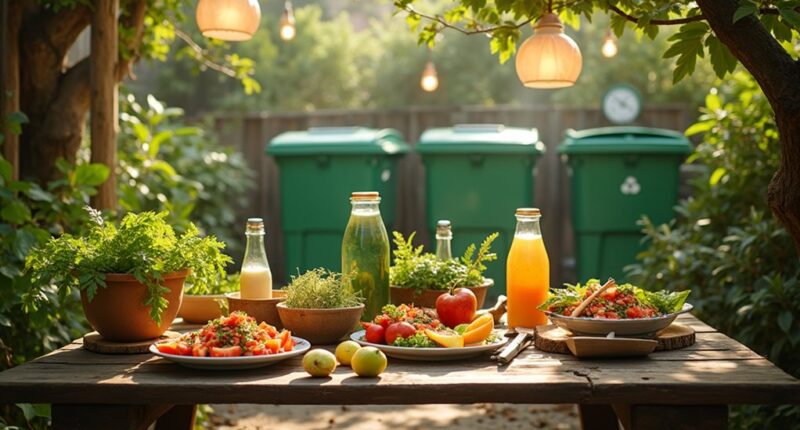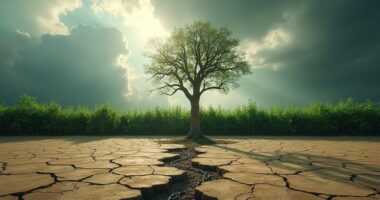Bella Ramsey’s Green Rider is shaking up “The Last of Us” Season 2, turning the set into an eco-warrior’s playground by ditching single-use plastics and pushing for carpooling and solar-powered lights—think of it as nature’s secret agent, sneaking sustainability into every scene. This means less waste, smarter energy use, and even vegan meals that slash the carbon footprint without sacrificing flavor. It’s not just about going green; it’s sparking real change, with more innovative twists waiting to unfold.
Bella Ramsey’s Eco Revolution
In the domain of blockbuster TV, “The Last of Us” Season 2 emerges as a trailblazer for sustainability, transforming film sets into eco-friendly havens. Ellie’s speech on seeking justice rather than revenge in the series parallels the production’s commitment to ethical and sustainable practices.
At the heart of this shift is Bella Ramsey’s innovative “green rider,” a contract clause that demands eco-conscious practices, turning everyday production into a model of environmental stewardship.
At the heart of this shift: Bella Ramsey’s innovative green rider, demanding eco-practices to transform productions into environmental models.
Imagine it as a backstage superhero cape, invisibly guiding the show away from waste and toward greener horizons.
Ramsey’s green rider outlined simple yet powerful changes, like ditching single-use plastics and streamlining transportation to cut emissions.
This wasn’t just paperwork; it sparked real habits among the cast and crew, encouraging them to swap out plastic bottles for refillable ones and opt for carpooling like savvy commuters dodging traffic jams.
Thanks to this push, the production introduced vegetarian and vegan catering options, slashing the carbon footprint of meals—think of it as trading a gas-guzzling steak dinner for a light, leafy salad that nourishes without the guilt.
The ripple effect was impressive.
By popularizing the green rider, Ramsey set a precedent for other shows, proving that sustainability can be as contagious as a viral meme.
Media outlets, like The Hollywood Reporter, spotlighted these efforts, blending celebrity influence with real-world impact.
On set, waste management got a makeover: recycling bins and compost systems popped up everywhere, while hazardous materials were handled with precision, avoiding mishaps that could harm local ecosystems.
The crew embraced conscious consumption practices, carefully considering purchases and opting for reusable alternatives whenever possible.
Humor aside, this enthusiasm for eco-innovation extended to energy use, with solar-powered lights cutting fossil fuel reliance—it’s like giving the sun a side gig in Hollywood.
Through it all, “The Last of Us” Season 2 reminds us that small, smart steps can lead to big changes, keeping the industry’s carbon footprint as light as a well-timed punchline, and Bella Ramsey’s Emmy-worthy performance as Ellie further highlights her multifaceted contributions to the series.









